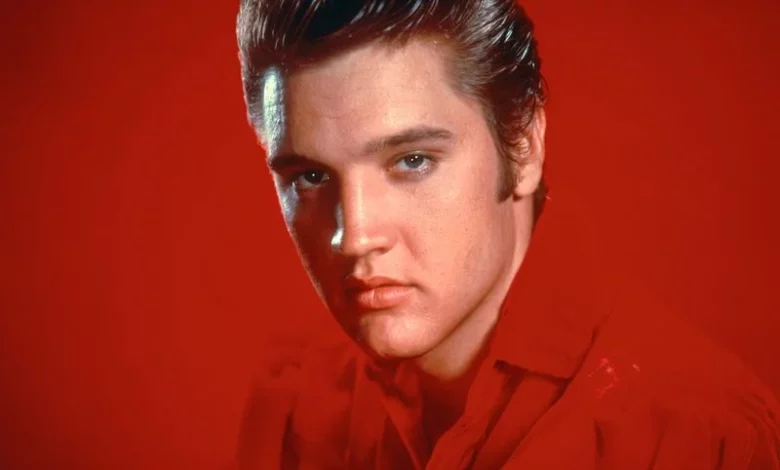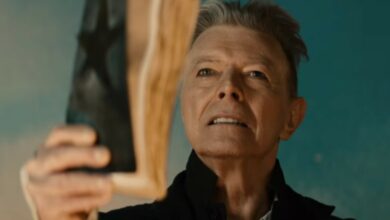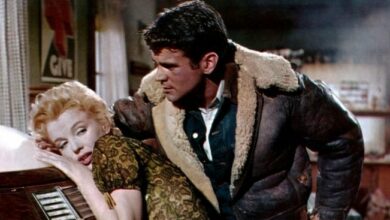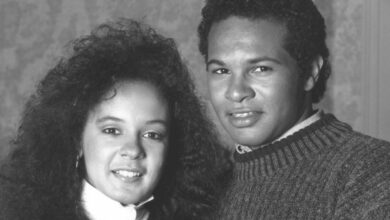How Elvis Presley got a record contract and released his debut single

From the first time you caught eyes with Elvis Presley as a child, you instinctively understood that he was a celestial talent. Even before hearing him sing, Elvis looked the part, and this, coupled with his distinct voluptuous vocals, made The King the very definition of the complete package.
In his youth, Presley regularly moved with his family throughout his irregular childhood and struggled to fit in wherever he went. Music was always something that he confided in, and through the hard times, it was Elvis’ only source of solace, one that he clung onto with all his might. In his formative years, it was puberty that arrived as the ultimate gift to Elvis. Returning to school in senior year, Elvis donned his newly-emerged sideburns and dressed like somebody you’d find on Beale Street in the heart of Memphis’ thrilling blues scene.
However, performing in public still frightened the life out of Elvis, even as a late teenager. However, a rendition of ‘Till I Waltz Again With You’ at the Humes’ Annual ‘Minstrel’ show in April 1953 would reshape everything instantly. “I wasn’t popular in school. I failed music—only thing I ever failed,” he once recalled about the performance. “And then they entered me in this talent show, when I came onstage I heard people kind of rumbling and whispering and so forth, ’cause nobody knew I even sang. It was amazing how popular I became in school after that.”
Suddenly, Elvis had been transformed. From a shy child that nobody had the time of day for, the budding musician had flowered into an artist that everybody wanted a piece of. From there, his popularity only escalated. That same summer, Elvis paid for studio time at Sun Records in the hope that they would sign him up, but his master plan was initially to no avail. He returned to the studio the following January, and again nothing came from the session. More rejection ensued as Presley failed at an audition for a local vocal quartet, The Songfellows, who bluntly explained that it was because he couldn’t sing.
Presley remained undeterred by the multitude of negativity thrown in his direction, and later that year, things finally began to fall in place. Sun boss Sam Phillips heard something special in his voice and believed that Presley had the ability to bring Black music to the white masses of America. Shortly after, he invited Elvis back down to the studio with the intention of making Presley’s debut single a cover of Jimmy Sweeney song ‘Without You’. Phillips brought in two local session musicians, Winfield ‘Scotty’ Moore and Bill Black, to assist Elvis. However, despite the optimism, the song just didn’t click.
Moments before everybody was about to go home, Presley erupted into Arthur Crudup’s ‘That’s All Right’, and three days later, it gained its first play on local radio. Moore later recalled: “All of a sudden, Elvis just started singing this song, jumping around and acting the fool, and then Bill picked up his bass, and he started acting the fool, too, and I started playing with them. Sam, I think, had the door to the control booth open, he stuck his head out and said, ‘What are you doing?’ And we said, ‘We don’t know.’ ‘Well, back up,’ he said, ‘try to find a place to start, and do it again.’”
Nobody else apart from Phillips believed in Elvis, but all he could see was dollar signs dripping off every note of the recording. ‘That’s All Right’ would lay down the unapologetically unique blueprint that Presley would follow throughout his career. “So while most of ’em were sitting around resting, a couple of us just started playing around with ‘That’s All Right’, a great beat number,” Elvis once remembered about the session. “We were supposed to be resting for ten minutes or so, so we just did it natural.”
He added: “It came off pretty good, and Mr. (Sam) Phillips, the man who owned the recording company, said I should go ahead and sing all the songs my own way, the way I knew best. We tried it, and everything went along a lot better. They decided to put ‘That’s All Right’ on record and backed it up with ‘Blue Moon of Kentucky’. That was my first record. I’ll never forget it.”
Even an innate talent like Elvis struggled to make people sit up and take notice of him. ‘That’s All Right’ only achieved local success, yet, laid the first brick in the wall on his ascension to royal status and becoming the 20th Century’s most monumental iconoclast.
If it weren’t for Phillips believing in Presley’s natural star-power and taking a gamble on him, then The King would never have resided on his throne.





